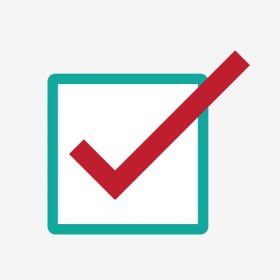
When students seek additional credits for learning that has occurred outside of their regular school program, please follow this process for each request. First consider external credits, then equivalency before proceeding to course challenge.
Printable PDF Documents
External Credits (Approved external credentials)
These are documents or credentials earned by a student upon successful completion of an external course that falls outside the normal B.C. school curriculum. Because these courses are developed and offered outside the B.C. school system, they must meet specific criteria in order to be authorized as an external credential course. The Ministry of Education maintains a list of approved external organizations, courses, and credentials that can be searched through the BC MOE course registry.
Although external credentials may contribute towards graduation requirements, they may or may not meet general or specific admissions requirements for post-secondary institutions. It is students’ responsibility to verify admissions requirements for the post-secondary institutions they plan to attend.
An external credential will be assigned a “Transfer Standing” (TS) credit, or where possible a letter grade and percentage determined by the school staff and administration in consultation with the district staff when appropriate.
Equivalency (Documented Prior Learning*)
Courses or programs taken outside of the B.C. school system may qualify for equivalency credit if:
● Sufficient content has been covered to enable the student to be successful in further learning in the content area
● The student provides documentation that the learning standards of the BC curriculum course were successfully completed
Course equivalency will be assigned a “Transfer Standing” (TS) credit, or where possible a letter grade and percentage. Equivalency determinations are determined by school staff and administration in consultation with district staff when appropriate. Equivalency can be determined through:
● Comparison of learning standards
● Comparison of general subject matter
● Comparison of depth or breadth of coverage of subject matter
● Comparison of assessment methods, instruments, and standards.
Additional information can be found in the Handbook of Procedures for the Graduation Program.
Course Challenge (Undocumented Prior Learning)
Grade 10,11 and 12 students may request an opportunity to challenge a Ministry authorized course or SD61 Board Authority / Authorized (BAA) course for credit. However, students who request the opportunity to challenge a course must be able to give strong and compelling evidence that they will succeed in the challenge and that it is in their best interests. Students must demonstrate that they have met the learning outcomes for the course being challenged, and the challenge process should maintain the high standards of a quality education.
Challenge is not envisioned as a way for students to improve their course marks, nor as a replacement for the valuable experience of learning in a classroom setting. Students can’t challenge a course they have already taken. Also, the entire course must be challenged. Partial credit will not be granted through the challenge process.
The Ministry will fund enrolling boards of education the equivalent per pupil funding of a 1-credit course for each successfully completed course challenge.
For reporting and transcript purposes, schools must assign a letter grade and percentage to all credits awarded through challenge processes.
To receive funding, enrolling boards of education must report successful course challenges to the Ministry through the Transcript and Examination (TRAX) system by June 30 of the school year in which the challenge occurred. For courses completed via a challenge process, schools must report the appropriate TRAX code in the “Course Type Field.” More information about reporting course challenges can be found in the Handbook of Procedures for the Graduation Program.
If the enrolling board of education arranges with another board to conduct a challenge assessment for a Ministry-developed course not offered in the enrolling school district, then the enrolling board must pay any fee charged by the non-enrolling board to cover the costs of the challenge process.
International students must comply with the challenge procedures set out in the Ministry’s International Student Graduation Credit Policy.
Course Challenge Process
A student can challenge to receive credit for any Ministry-authorized or SD61 Board/Authority Authorized (BAA) Grade 10, 11 or 12 courses if:
● They are currently enrolled in the District
● They have not completed the course through prior enrollment.
● They can give compelling evidence that they will succeed in the challenge.
● They have not previously challenged the course.
Students must be able to demonstrate their readiness to challenge a course based on factors such as a recommendation from a previous teacher, or from evidence that relevant learning has been acquired outside the regular classroom setting. School staff, in consultation with students and parents, are to make the decision about challenge readiness.
Principals must submit documentation of the challenge request to the District Team. Challenge process, including a pre-challenge equivalency review, and the documentation will be returned to the school and must be made available to Ministry auditors if requested. Examples of assessment strategies that could be used in a challenge process could include: hands-on demonstrations, oral performances, interviews, written examinations, or presentations of a collection of work.
Credit awarded through challenge is measured by the same standards used for students who have taken the course through enrollment. A challenge is considered successful when a student has achieved at least a C- and fifty percent (50%).
Course Challenge Timelines
Course challenge requests need to be submitted to school administrators and then forwarded to Amanda Chan, Challenge Coordinator (mailto:achan@sd61.bc.ca) by October 15th and/or March 3rd of each school year.
Course challenges will be completed at a mutually agreed upon time in November and April of each school year.
Have questions or need clarification? email: learningteam@sd61.bc.ca


